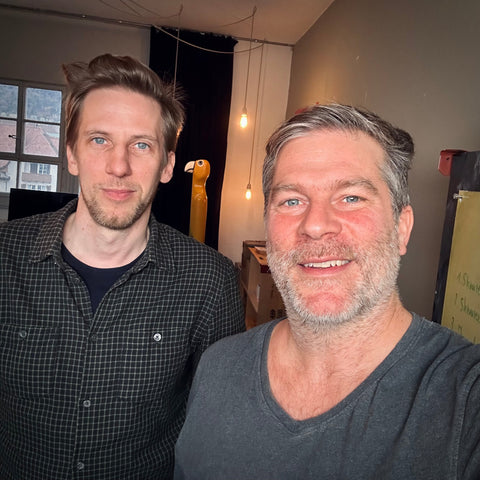
Bucket list effect
We would like to invite you to take part in a little experiment:
Take a piece of paper and a pen. Set the timer to 20 minutes and your phone to flight mode. And now write down seven experiences you would like to have. Important: It's not about professional goals, it's about things that are not vital but worth living for.
Do you have seven (it could be three or thirty)? This is your "bucket list".
The term comes from the English - "to kick the bucket" means to kick the bucket - so a bucket list is a list of goals that we want to achieve before we die.
Now comes the difficult part: when do you make time for these goals?
The Zurich psychologist Alexandra Freund coined the term "bucket list effect": In middle age, i.e. between 30 and 60, we are so busy juggling family and career that we are simply too exhausted to take care of our bucket list. We have no time and no energy for leisure. We only do what is essential and neglect what is worth living for.

We postpone the goals on our bucket list. In psychology, this is called goal shelving.
The two predominant thoughts in middle age:
1. "I would like to... but I'm too exhausted for that"
2. "I would like to... but I don't have time for that".
We believe that we will have more time later and be less exhausted. Later means when the children have left home or things have calmed down at work. We sometimes put off pleasant experiences until we perhaps no longer want them. For example, if you are longing for a trip, you could keep putting off your plans until you have saved enough money to be able to afford a luxury trip. By the time you have the money, the longing to explore new places may have passed; the moment is gone. Perhaps it would have been better to seize it when it was there.

The problem, Freund explained to us, is that we live in a culture of delay of gratification. We learn early on as children to put off the nice things. First the work, then the pleasure. This is of course an important skill, otherwise we would only eat marshmallows and watch TikTok. On the other hand, why the sweetness at the end? Sure, if you take it to an extreme and only eat dessert, it's not healthy, but neither is this fanatical joylessness. Friend "It's important to understand that life doesn't start sometime later, but here and now, this is our life. In a very trivial way, life is only ever now."
This is most obvious when it comes to friendship. Many people say to themselves: I would like to spend more time with friends later. That won't work, because if you don't do it now, you won't have any later.

